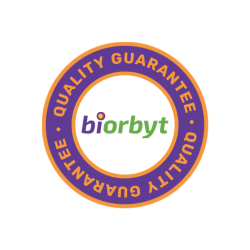You have no items in your shopping cart.
Cart summary

MUSK Protein, Human, Recombinant (aa 433-783, His & GST)
Catalog Number: orb1955326
| Catalog Number | orb1955326 |
|---|---|
| Category | Proteins |
| Description | Muscle, skeletal receptor tyrosine-protein kinase, also known as Muscle-specific tyrosine-protein kinase receptor, Muscle-specific kinase receptor, and MUSK, is a single-pass type I membrane protein that belongs to the protein kinase superfamily and tyr protein kinase family. MUSK contains one FZ (frizzled) domain, three Ig-like C2-type (immunoglobulin-like) domains, and one protein kinase domain. This protein is a muscle-specific tyrosine kinase receptor and it may play a role in clustering of the acetylcholine receptor in the postsynaptic neuromuscular junction. MUSK expression is increased in muscle cells stimulated with Wnt or at conditions when the Wnt signaling was activated. MUSK is a muscle-specific receptor tyrosine kinase that is activated by agrin. It has a critical role in neuromuscular synapse formation. MUSK is a receptor tyrosine kinase that is a key mediator of agrin's action and is involved in neuromuscular junction (NMJ) organization. Defects in the MUSK encoding gene are a cause of autosomal recessive congenital myasthenic syndrome (CMS). Congenital myasthenic syndromes are inherited disorders of neuromuscular transmission that stem from mutations in presynaptic, synaptic, or postsynaptic proteins. MUSK mutations lead to decreased agrin-dependent AChR aggregation, a critical step in the formation of the neuromuscular junction. Mutations in this receptor encoding gene also have been associated with the congenital myasthenic syndrome. |
| Tag | His, GST |
| Purity | 98.00% |
| MW | 68 kDa (predicted); 58 kDa (reducing conditions) |
| UniProt ID | O15146 |
| Expression System | Baculovirus Insect Cells |
| Biological Origin | Human |
| Biological Activity | Muscle, skeletal receptor tyrosine-protein kinase, also known as Muscle-specific tyrosine-protein kinase receptor, Muscle-specific kinase receptor, and MUSK, is a single-pass type I membrane protein that belongs to the protein kinase superfamily and tyr protein kinase family. MUSK contains one FZ (frizzled) domain, three Ig-like C2-type (immunoglobulin-like) domains, and one protein kinase domain. This protein is a muscle-specific tyrosine kinase receptor and it may play a role in clustering of the acetylcholine receptor in the postsynaptic neuromuscular junction. MUSK expression is increased in muscle cells stimulated with Wnt or at conditions when the Wnt signaling was activated. MUSK is a muscle-specific receptor tyrosine kinase that is activated by agrin. It has a critical role in neuromuscular synapse formation. MUSK is a receptor tyrosine kinase that is a key mediator of agrin's action and is involved in neuromuscular junction (NMJ) organization. Defects in the MUSK encoding gene are a cause of autosomal recessive congenital myasthenic syndrome (CMS). Congenital myasthenic syndromes are inherited disorders of neuromuscular transmission that stem from mutations in presynaptic, synaptic, or postsynaptic proteins. MUSK mutations lead to decreased agrin-dependent AChR aggregation, a critical step in the formation of the neuromuscular junction. Mutations in this receptor encoding gene also have been associated with the congenital myasthenic syndrome. |
| Expression Region | A DNA sequence encoding the C-terminal segment of human MUSK isoform 2 (O15146-2) (Arg 433-Val 783) was fused with the N-terminal polyhistidine-tagged GST tag at the N-terminus. Predicted N terminal: Met |
| Storage | -20°C |
| Note | For research use only |
| Application notes | A Certificate of Analysis (CoA) containing reconstitution instructions is included with the products. Please refer to the CoA for detailed information. |
| Expiration Date | 6 months from date of receipt. |


